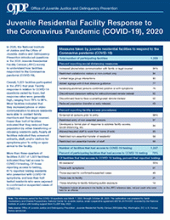Surveys
A Nationwide Assessment of Jail Reentry Policies and Practices: A Two-Tiered Study of the Field
Elder Abuse Survivor Equity (EASE) Study: National Longitudinal Trajectories and Translation for Practitioners and the Public
Domestic Terrorism Targeting America’s Political Elites
Life-course and Intergenerational Effects of Crime and Criminal Justice Involvement: Identifying Risks and the Search for Resilience
Mapping the Continuum of Support for Violent Extremism in the United States
Inclusive Research: Engaging People Closest to the Issue Makes for Better Science & Greater Impact; 2023 NIJ Research Conference Plenary
This panel will discuss what inclusive research is, how to conduct it, and what issues and challenges exist about engaging in it. “Inclusive research” has its history as a participatory research method designed to ensure people closest to the issue or problem under study are authentically engaged in the research process rather than simply being “research subjects.” While community-based participatory research has begun to take on greater prominence in the criminal justice realm, such efforts are largely confined to qualitative research inquiries.
See the YouTube Terms of Service and Google Privacy Policy
What Has Longitudinal Research on Teen Dating Violence Taught Us?
VICTIMIZATION SURVEYS AND CRIMINAL JUSTICE PLANNING
Juvenile Residential Facility Response to the Coronavirus Pandemic (COVID-19), 2020
Estimating School Climate Traits Across Multiple Informants: An Illustration of a Multitrait-Multimethod Validation Through Latent Variable Modeling
Measuring the Impact of Victim Services
Campus Sexual Assault Responses (CSAR): Informing Trauma-Informed Policies, Protocols, and Training
Sexual violence is a significant criminal justice problem with long-term effects for its victims. In particular, sexual assault on or related to college campuses across the United States presents a growing public health and economic burden, starting with significant impacts on academic outcomes.
See the YouTube Terms of Service and Google Privacy Policy
Economic Justice for Survivors of Intimate Partner Violence
See the YouTube Terms of Service and Google Privacy Policy



